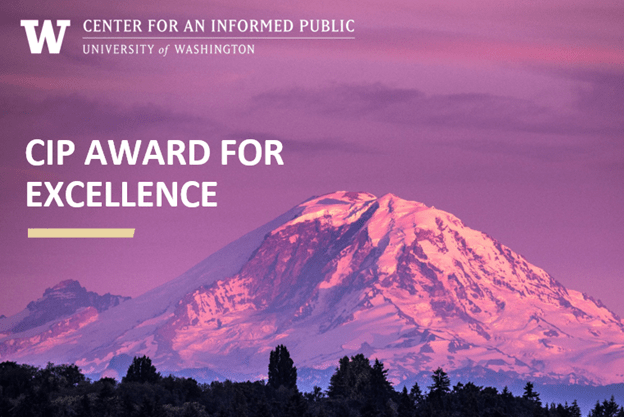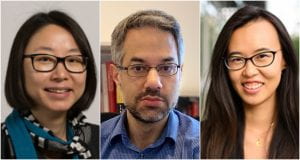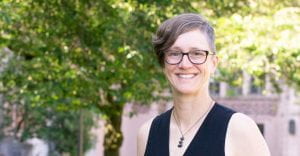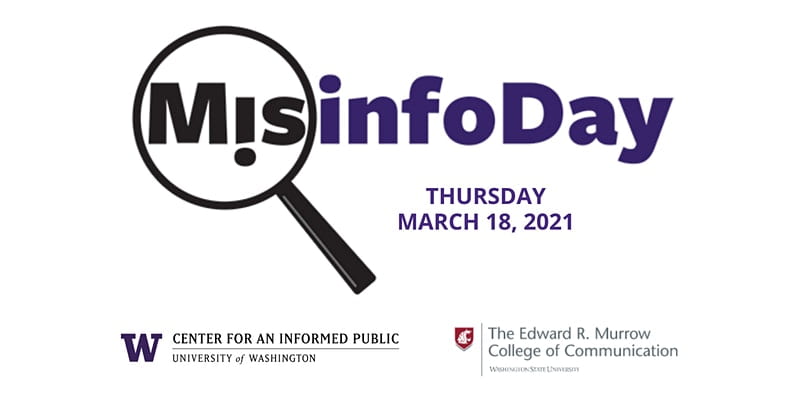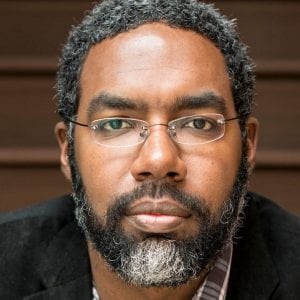This is a web version of the Center for an Informed Public’s News & Insights newsletter for February 2021, which was sent out on Feb. 26. Check out our newsletter archives. Not signed up to received the CIP’s newsletter? Register here.
CIP seeks nominations for 2021 ‘Award for Excellence
Do you know an individual or organization that has made outstanding contributions, achievements, or bodies of work that significantly resist strategic misinformation, promote an informed society and strengthen democratic discourse? Nominate them for the CIP Award for Excellence, which will highlight those making a positive impact in mitigating the challenges of mis- and disinformation, and will come with a $5,000 award for the winner.
- Nominations are due on March 19 by 11:59 p.m. PDT. Learn more about the award’s criteria, selection process and eligibility.
- NEWS: CIP welcomes three new faculty members. // LEARN MORE
- EVENT: CIP’s Kate Starbird, other UW researchers, to discuss Election Integrity Partnership’s final report: “The Long Fuse: Misinformation and the 2020 Election“ // LEARN MORE
Attention middle and high school educators: Register your classes for MisinfoDay 2021
The University of Washington‘s Center for an Informed Public, in partnership with Washington State University‘s Edward R. Murrow College of Communication, will present MisinfoDay2021 on Thursday, March 18 and invites middle and high school teachers and librarians to register their classes by March 11. During this free, virtual event, students will learn to identify and combat mis- and disinformation through speaker presentations and interactive activities in morning and afternoon sessions.
Sessions will focus on spotting misinformation; factchecking claims and sources; understanding the landscape of information disorder; and disinformation goals and tactics. Most sessions will be open to both middle and high school students. Event sessions will be livestreamed on YouTube and recordings will be made available following the event for those who cannot watch live.
- CIP INVITED SPEAKER SERIES: UNC-Chapel Hill’s Deen Freelon discusses “Hashtag Heroes vs. Dinsinfo Dystopia.” // READ MORE
- INSIGHTS: How to tell if COVID-19 vaccine information is credible. // LEARN MORE
RESEARCH NOTES
CIP joins new COVID-19 vaccine misinformation research coalition
The University of Washington‘s Center for an Informed Public, Stanford Internet Observatory and New York University‘s Center for Social Media and Politics and Tandon School of Engineering, have recently partnered to launch The Virality Project, a new coalition of research entities working to detect, analyze and respond to incidents of false and misleading narratives related to COVID-19 vaccines across online ecosystems, enabling civil society and health communicators to ultimately mitigate the impact of narratives which might otherwise undermine the public’s confidence in the safety of evidence-based policies in the United States.
- Learn more about The Virality Project.
- Analysis: Evaluating COVID-19 vaccine policies on social media platforms.
CIP IN THE NEWS
Center for an Informed Public researchers have been regularly interviewed, quoted or otherwise featured in various local, regional, national and international news outlets, livestreams and podcasts. Recent highlights include:
- UW iSchool PhD student Sarah Nguyễn (pictured above), who is working with CIP postdoctoral fellow Rachel Moran on a new research project examining misinformation in Vietnamese-American communities, appeared on “Face the Truth,” a program from SBTN, a 24-hour Vietnamese-language news network reaching the Vietnamese diaspora community. [Face the Truth / SBTN]
- CIP cofounder Kate Starbird, a UW Human Centered Design & Engineering associate professor, was interviewed by Nature about how former president Donald Trump helped conspiracy theories take root and spread through social media and mass media. “We see this interplay between the elites and their audiences, who are actually collaborating with each other to create false narratives.” [Nature]
- Starbird was also featured in a recent Wired interview about the Biden administration’s approaches to fighting mis- and disinformation. “My only worry is that [Biden may] further politicize the work to try to combat misinformation,” she said. [Wired]
- Starbird was interviewed by Scott Gabriel Knowles, a Drexel University history professor who studies disasters, on his COVIDCalls livestream, talking about disinformation during the COVID-19 pandemic, and was featured in Columbia Journalism Review discussing the potential future of America’s information ecosystem. [COVIDCalls; Columbia Journalism Review]
- Did you end up falling for (or sharing) the recent widely shared hoax video from Mars purportedly captured by the NASA rover Perseverance? In an interview with Inverse, CIP director Jevin West, an associate professor at the UW iSchool, said: “There’s a lot of people that take advantage of these situations where there’s a vacuum of information and an appetite for that information — in this case a video from Mars.” [Inverse]
- In a recent interview with Knowable magazine, West described the ways online misinformation can spread. “The scale of reach that you have with social media, and the speed at which it spreads, is really like nothing humanity has ever seen,” he said. West pointed out the limited impacts of factchecking because corrections usually don’t spread as far or as fast as the original misinformation. [Knowable]
- The UW class “Calling BS: Data Reasoning in a Digital World,” developed by West and CIP faculty member Carl Bergstrom, a UW Department of Biology professor, was described by The Hechinger Report as an example of a new push by educators to teach students how to be “better consumers of news, media and data.” [The Hechinger Report]
- CIP cofounder Ryan Calo, a UW School of Law professor, was interviewed by PolitiFact about litigation filed by Dominion Voting Systems accusing Newsmax of defamation. [PolitiFact]
- CIP postdoctoral fellow Rachel Moran, who wrote her doctoral dissertation on trust in digital media, was recently interviewed by Courthouse News Service for an article about how the economics of journalism today are undermining trust in media. “You cannot overstate the significance of social media” in declining trust, because social media are “optimized for attention rather than quality.” [Courthouse News Service]
- In an article about the Texas Department of Health Services’ recent launch of a multi-million campaign to combat vaccine hesitancy, CIP postdoctoral fellow Kolina Koltai, who studies vaccine misinformation, said it makes sense to target “more vulnerable populations where there’s higher rates of vaccine hesitancy. … You want people to want to get [the vaccine], even if it’s not available yet.” [Texas Tribune]
- Koltai was also interviewed by KIRO Radio, Vice News, The Washington Post, OneZero and the UW Daily about about vaccine misinformation.
- A recently published study that examines how Amazon.com algorithms promote online health misinformation, conducted by CIP faculty member and iSchool assistant professor Tanu Mitra and iSchool PhD student Prerna Juneja, was featured by The Spokesman Review and UW Daily.

